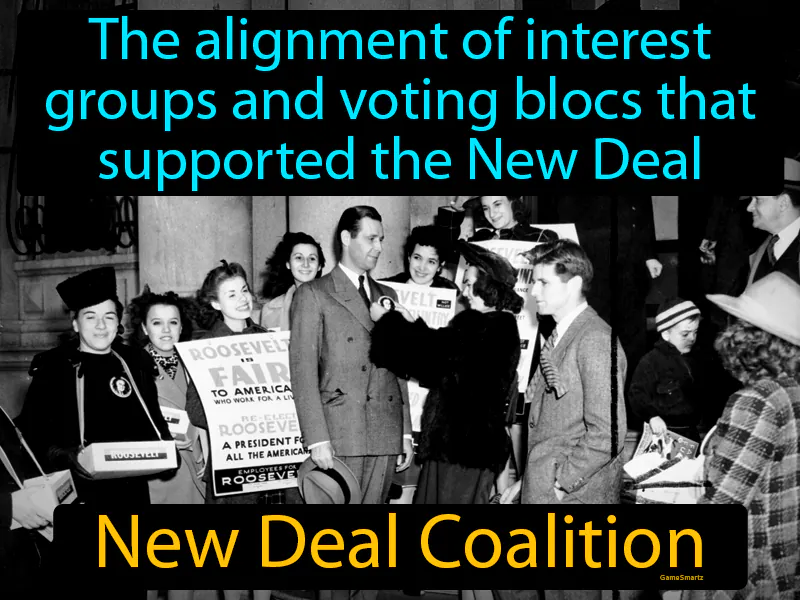New Deal Coalition
New Deal Coalition: Easy to understand
The New Deal Coalition was a group of diverse voters and interest groups that came together to support President Franklin D. Roosevelt's New Deal policies during the Great Depression. This coalition included labor unions, city machines, minorities, farmers, and intellectuals, all united to combat economic hardship and reform the financial system. It was important because it helped Roosevelt implement programs that provided jobs, relief, and economic recovery, reshaping American politics by creating a dominant Democratic party. Today, the concept of building broad coalitions is still relevant, as modern political campaigns often bring together various groups with shared interests to achieve common goals. For example, a community might unite local businesses, environmentalists, and residents to advocate for sustainable development, showing how diverse groups can work together for positive change in everyday life.

Practice Version

New Deal Coalition: The alignment of interest groups and voting blocs that supported the New Deal. New Deal Coalition. The New Deal Coalition was a diverse group of voters who supported Franklin D. Roosevelt and the Democratic Party in the 1930s and 1940s to implement social and economic reforms.